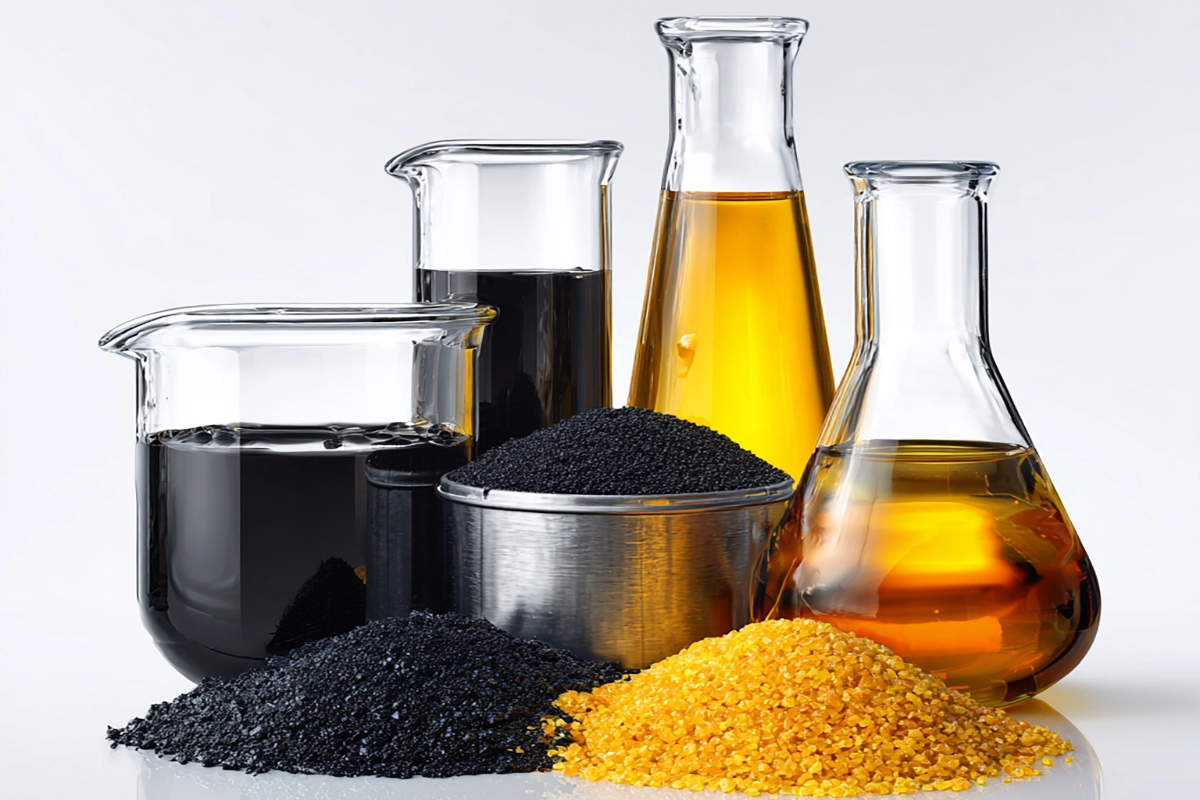We supply all kinds of petroleum products such as bitumen, base oil and granular sulfur.


Base oil is a transparent, viscous, hydrocarbon substance that serves as the primary component in the formulation of various lubricants. It is produced either from crude oil refining or through synthetic processes such as hydrocracking and gas-to-liquid (GTL) synthesis.
The quality and properties of base oils — including viscosity index, thermal stability, oxidation resistance, and the ability to maintain a lubricating film — play a decisive role in the performance of the final product.
Base oils are generally divided into three main groups: mineral, synthetic, and semi-synthetic. Each group has its own specific composition and processing method tailored to industrial needs. Mineral base oils are widely used due to their affordability and availability; however, synthetic base oils, such as polyalphaolefins (PAOs) or esters, deliver superior performance at both high and low temperatures and ensure longer service life.
Applications of base oils range from industrial and engine lubricants to greases, hydraulic fluids, transformer oils, and even in the formulation of chemical products and additives. Choosing the right grade and type of base oil ensures optimised equipment performance, reduced wear, lower heat generation, and improved energy efficiency.
These characteristics make base oil the backbone of the global lubrication industry.
Bitumen is a black, highly viscous hydrocarbon material, obtained mainly from crude oil refining or naturally from bitumen deposits. Due to its unique chemical structure, it possesses waterproofing properties and high resistance to weathering, heat, and wear.
The primary application of bitumen is in road construction and asphalt production, where it acts as a binder for aggregate particles, creating a smooth, durable surface.
Beyond road construction, bitumen plays a crucial role in waterproofing membranes used in building projects, bridges, airport runways, and marine structures. Depending on processing methods and additives, bitumen can perform differently under various temperatures and conditions.
The main types of bitumen include penetration (pure) bitumen, oxidised bitumen, solution bitumen, and emulsion bitumen, each offering distinct advantages and specific applications.
Bitumen quality is evaluated using parameters such as penetration grade, softening point, and flexibility index. By selecting the appropriate type of bitumen and combining it with suitable materials, the durability and performance of structures are significantly enhanced, while maintenance and repair costs are reduced. These properties make bitumen one of the key and widely used materials in civil infrastructure.
Granulated sulfur is one of the processed forms of elemental sulfur, produced as spherical or semi-spherical particles with a uniform size. This product is typically derived from liquid sulfur obtained in oil and gas refining processes, which is made moldable and durable through prilling or granulation technology. The granulated structure simplifies the handling, transportation, and storage of sulfur while minimising dust formation and material losses.
Technically, granulated sulfur is widely used in various industries due to its high purity, bright yellow color, and physical stability. The most important application is in the production of sulfuric acid, serving as a base material in many chemical processes and phosphate fertiliser production.
In agriculture, granulated sulfur is applied directly to soil or included in fertiliser formulations, supplying essential sulfur for plants and helping to adjust the pH of alkaline soils. Other major consumers include the rubber industry, explosives manufacturing, non-ferrous metal refining, and petroleum processing.
The uniform shape and high abrasion resistance of granulated sulfur reduce logistics costs and safety hazards, while enhancing efficiency throughout the industrial supply chain.



WhatsApp us